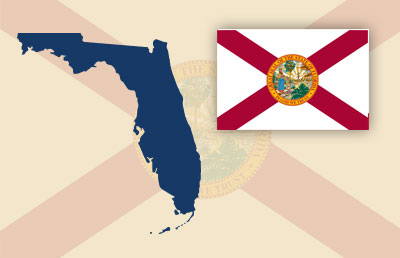Florida Enacts Provisions Regarding Online Notarizations

The state of Florida has recently enacted several provisions relating to notaries, with effective dates ranging from immediately to January 1, 2020.
Under Florida law, many documents must be signed in the presence of a notary public. The notary’s function is to both authenticate signatures and administer oaths on these documents, in order to prevent fraud. The notary public is responsible for determining that the person signing is who he or she states. Under existing Florida law, a notary public may not notarize a signature on a document if the principal (the person whose signature is being notarized) is not in the physical presence of the notary public at the time of notarization.
Under the new provisions, any document requiring notarization may be notarized electronically. In performing an online notarization, an online notary public must verify the identity of a principal at the time the signature is taken by using audio-video communication technology and must record the entire audio-video conference session between the notary public and the principal and any subscribing witnesses. A principal is not allowed to act in the capacity of a witness for an online notarization.
In addition, when notarizing a document electronically, a notary public is required to use an electronic signature that is unique to the notary public, capable of independent verification, retained under the notary public’s sole control, and attached to or logically associated with the electronic document so that any subsequent alteration to the electronic document displays alteration evidence.
An online notary public can perform an online notarization regardless of the physical location of the principal at the time of the notarial act, provided the notary public is physically located in Florida while performing the online notarization. The validity of an online notarization performed by an online notary public is determined by Florida law, regardless of the physical location of the principal at the time of the notarial act.
The bill also authorizes the use of an electronic will. The requirement that a will be signed is satisfied by an electronic signature. An electronically signed will is deemed to be executed if the document states that the person creating the document intends to execute and understands that he or she is executing the document in and pursuant to Florida laws. The witnessing of a will execution can be done remotely if the individuals are supervised by a notary public, the individuals are authenticated and signing as part of an online notarization session, the witness hears the signer make a statement acknowledging that the signer has signed the electronic record, and the testator provides, to the satisfaction of the online notary public, verbal answers to a specific list of questions set out in the bill.
Zachary Pearlstein, JD, is a Regulatory Compliance Director with CLA's Mortgage Advisory Division. He joined CLA on January 1, 2014, as part of its acquisition of Bankers Advisory, Inc. Zachary oversees Mortgage Advisory's regulatory compliance team, which focuses on federal and state compliance, fair lending, and the Home Mortgage Disclosure Act (HMDA). He is a graduate of Brandeis University and earned his juris doctor at Suffolk University Law School. He is admitted to the Massachusetts Bar.

Comments are closed.